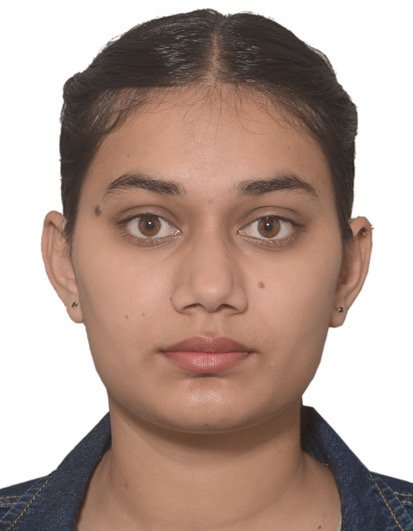Your Dream of Studying in the UK Begins Here!
Expert guidance on applications, scholarships, and student visas for a successful UK study journey.

Why Choose the UK for Higher Education?
Overview of the UK Education System:
- UK degrees are globally recognized and highly valued.
- Universities in the UK are known for their emphasis on research and preparing students for careers.
- A range of flexible study options are available, including undergraduate, postgraduate, and short-term programs.
- Students also gain access to career opportunities through post-study work visas.
Top UK Universities for Indian & International Students

University of Portsmouth
Known for business, engineering, and marine science programs.

Coventry University
High employability rates; popular for healthcare, business, and engineering.

Birmingham City University (BCU)
Known for arts, media, and healthcare.

University of Sunderland
Offers strong international student support and is notable for courses in hospitality and engineering.

University of Bradford
Recognized for social sciences, business, and engineering.

University of Central Lancashire (UCLan)
Popular for sports science, law, and business programs.

University of West London
High rankings in music, nursing, and creative arts.

University of Westminster
Known for media, design, and business.

University of Leicester
Noted for law, physics, and biological sciences.

University of Law
Offers specialized programs in law and criminal justice.

University of Strathclyde
Strong in business and engineering.

De Mont fort University
Famous for Art and Design, Pharmacy, Engineering

Bangor University
Bangor is known for its expertise in Ocean Sciences, Psychology, and Environmental Science.

Aston University
World-class teaching quality and strong links to business and the professions.

Northampton University
Business, finance, law, counselling, psychology, social care and social work, engineering, computing, bioscience and sport.

Hertfordshire University
Academic excellence in research and teaching all over the world
Scholarships for International Students
Available Scholarships:
- University-Specific Scholarships: Such as UCLan’s International Excellence Scholarship or Coventry’s Future Global Leaders Scholarship.
- Merit-Based Scholarships: Rewarding students with excellent academic records.
- Need-Based Scholarships: Financial aid for students based on financial need.
- Program-Specific Scholarships: For specific courses like engineering, business, or healthcare.
Application Process:
- Research each university’s scholarship offerings and apply before the deadlines.
- Provide required documents, such as academic records, personal statements, and financial evidence.
- If required, write a strong scholarship essay detailing your strengths and why you are an ideal candidate.
Common Mistakes Made by Students & How to Avoid Them
Common Mistakes:
- Delaying Applications: Missing out on university and scholarship deadlines.
- Choosing the Wrong Course: Picking a course based solely on popularity rather than suitability.
- Not Explaining Gaps: Failing to provide valid reasons for academic or career gaps.
- Incomplete Documentation: Forgetting to submit necessary documents like transcripts and financial proof.
Solutions:
- Submit applications as early as possible.
- Provide explanations and supporting documents for any study or work gaps.
- Ensure all necessary documents, including passport, academic records, and proof of funds, are complete.
- Seek expert guidance to select a course and university that match your goals.
Checklist of UK Student Visa Requirements
CAS (Confirmation of Acceptance for Studies) from a UK university
Valid passport and recent passport-sized photos.
Proof of funds to cover tuition and living expenses.
Tuberculosis (TB) test results if required.
ATAS certificate for certain courses.
English proficiency test scores (IELTS, TOEFL).
Ensure all documents are translated into English if necessary.
Maintain adequate funds in your bank account for at least 28 days before applying.
Pay the healthcare surcharge to access the UK’s National Health Service (NHS).
Download the List of UK Study Visa Scholarships
Frequently Asked Questions (FAQs)
Typically, UK student visa applications are processed within 3 weeks when applying from outside the UK. However, it’s best to apply early, as processing times can vary.
- In London: £1483/month for London (up to 9 months).
- Outside London: £1136/month for outer london(up to 9 months).
Yes, international students can work part-time during their studies and full-time during breaks. Some restrictions apply, so check the specific conditions on your visa.
After graduation, you may apply for a Graduate visa, allowing you to stay in the UK for two years (or three for PhD graduates) to work or look for work.
Most UK universities require an English proficiency test score, typically IELTS, with a minimum band of 6. Some universities may waive this if you meet certain criteria, such as high English scores in 12th grade.
You can prove your English proficiency with an approved test like IELTS. Some universities may accept other tests or qualifications, so confirm with your chosen university.
Yes, you can apply for a Graduate visa, which allows you to stay in the UK to work for two years (three for PhD students) after completing your course.
Common requirements include academic transcripts, a personal statement, recommendation letters, proof of English proficiency, and any additional documents specified by the scholarship provider.
There’s no upper age limit for studying in the UK, though applicants under 18 may need additional consent from parents or guardians.
If you have an academic or career gap, provide a clear explanation and supporting documents, such as medical certificates, certificates from any courses or training completed, or employment records.
What are Students Say
” Thanks to Vision Group’s expert guidance, I secured my UK study visa for Birmingham City University after a previous refusal – truly grateful for their unwavering support! “

Jasjot Singh
Studying at Birmingham City University
” I highly recommend Vision Group for their excellent support in securing my UK study visa for Bath Spa University – they made the process smooth and hassle-free! “

Mahikdeep Kaur
Studying at Bath Spa University
” I am extremely satisfied with the support from Vision Group; their expertise made my visa application process straightforward and effortless. “

Harman Singh Sidhu
Studying at Birmingham City University
Book Your Free 30-Minute Consultation for Guidance on Scholarships & Visa Applications!
Contact Information
- Phone: 81460-61000
- Email:: helpdesk@visionstudygroup.com
- Address: HO: SCO 668/1A, New Lajpat Nagar, Pakhowal Road, Ludhiana
- Address: BO: SCO 55-56-57, 2nd Floor, Sector 8-C, Madhya Marg, Chandigarh
- Address: BO: SCO 1, 1st Floor, Leela Bhawan, Patiala
- Address: BO: SCO 22, 1st Floor, Sector 17, Kurukshetra
- Address: BO: 1st Floor, Opposite Bikanervala, Pakhowal Road, Ludhiana
- Address: Canada Office: Vision Group INC Office 457, County Court Blvd, Suite 400, Brampton
